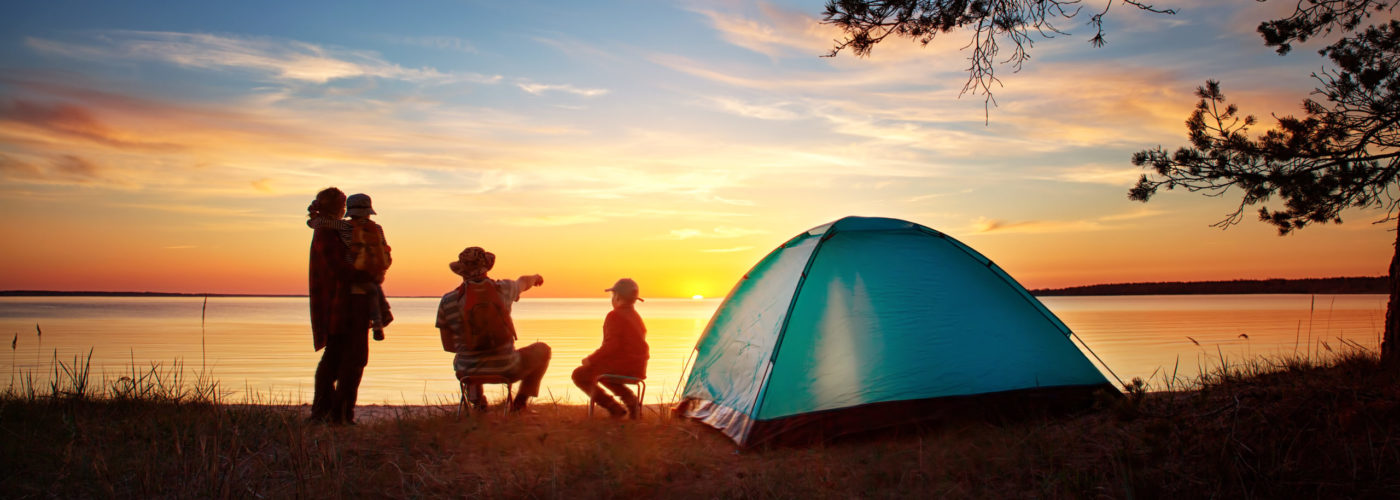Camping is a great way to renew your spirit with some fresh air and outdoor therapy. Before you head out, it is essential you take some safety precautions for the protection of the environment, wildlife, and yourself.
10 Essential Camping Safety Tips
Make Your Plans Known
Prepare for the Environment
Bring the Right Equipment
Maintain Your Fire Safely
Wildlife Safety
Consider the Pest Situation
Water Safety and Purification
Sanitation
Keep Warm Safely
Avoid Getting Lost
Make Your Plans Known
Search and rescue teams are kept busy year-round finding lost hikers and campers. While you never plan on getting lost, having an emergency plan could be a literal lifesaver.
Be sure to leave details about your trip with an emergency contact (like a family member or friend not going with you). The National Park Service recommends you leave details about where you will start, the route you plan to take, what equipment you have, and where you plan to end up. You’ll also want to give your emergency contact the contact details of the people going and the emergency number for the park or campground where you’re heading.
Many campers also file a camping plan with the local sheriff’s department, which makes it much easier for them to find a lost person.
Prepare for the Environment
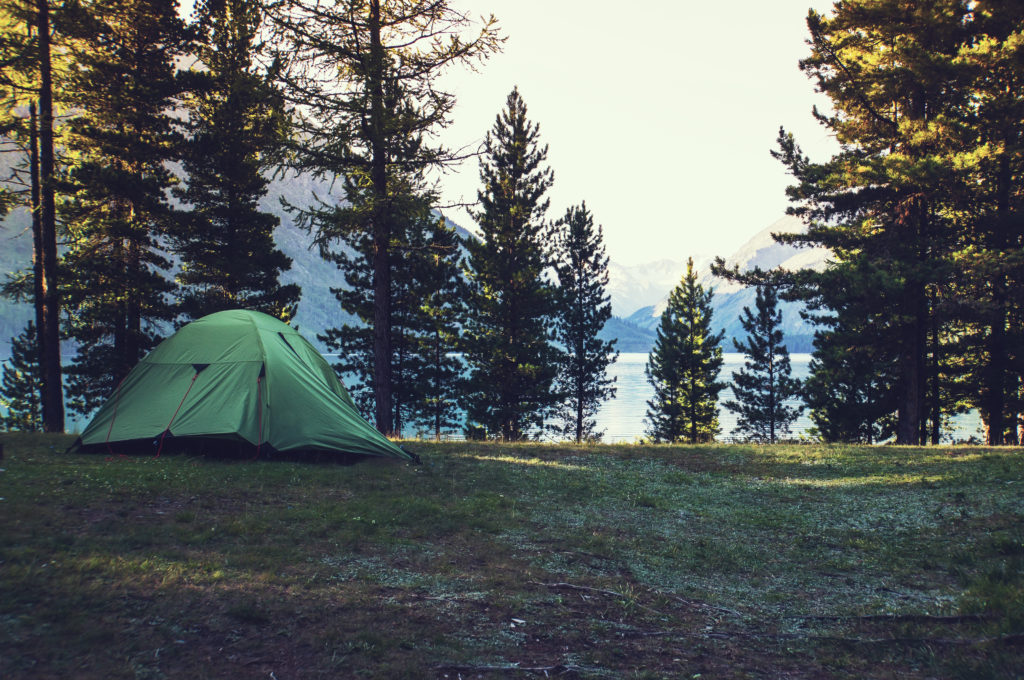
Be prepared for the type of environment and weather you’re expected to experience. If you’re camping in the mountains, you’ll want to be prepared for a cooler night or light showers. Camping somewhere warmer means you’ll want to bring a shade and methods for keeping you cool. Your destination should have a guide for what to expect while you’re camping there.
Bring the Right Equipment
Having the right equipment not only makes your camping experience more pleasant, but will also help keep you safe. The National Park Service has a comprehensive list of equipment you’ll need to go camping, including:
- Water
- Shelter and bedding
- Food
- Cooking supplies
- Cleaning supplies
- Personal hygiene products
Your equipment should also be safe to use. A quick Google search with the name of your camping item paired with “product recall” will let you know if there have been safety issues. You can also search the United States Consumer Product Safety Commission website to find product recalls.
Maintain Your Fire Safely
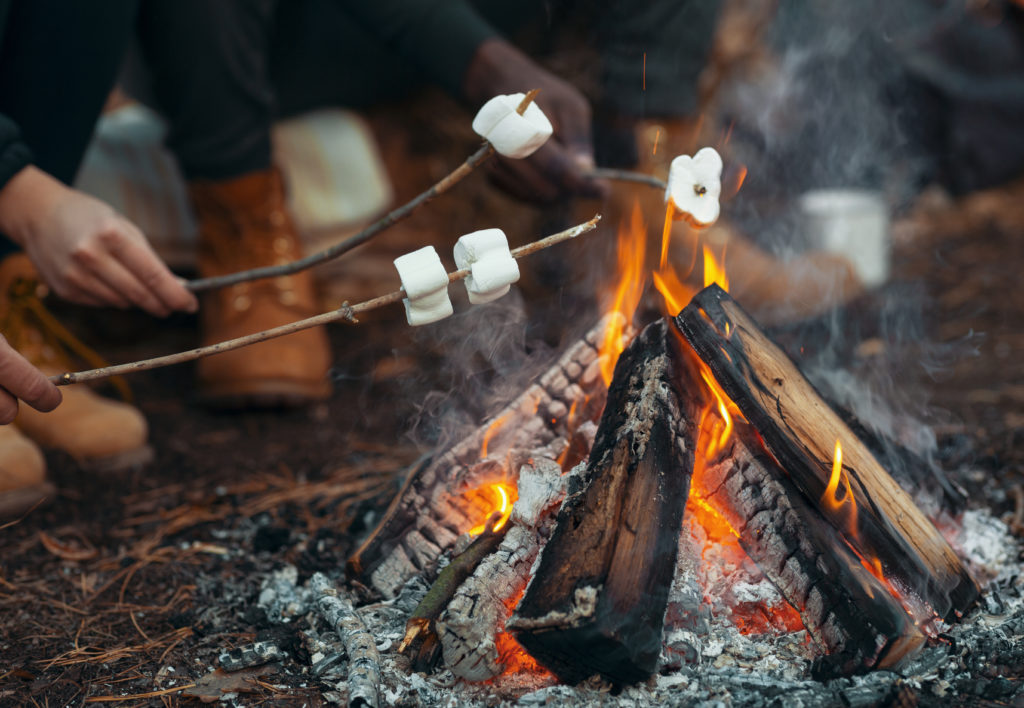
Telling stories around the campfire is fun and can be done safely, but it is critical that your fire is controlled. The National Fire Protection Association recommends the following safety tips for campfires:
- Before you start your fire, make sure you’re permitted to have it. High camping season is also high fire season and you may not be able to build a campfire due to fire restrictions. Fire restrictions are common in forested areas and notices are clearly posted at the forest or park entrance as well as the campsite.
- Have a way to extinguish the fire before you start it. It’s handy to have a shovel, pile of dirt, or bucket of water nearby.
- Keep the campfire small.
- Avoid starting a campfire on a windy, dry day.
- Keep the campfire 25 feet away from structures or anything that can burn.
- Clear away dry leaves and sticks as well as overhanging low branches and shrubs.
- Never use gasoline or other flammable liquids.
- Watch children and pets closely around a fire.
- Stop, drop, and roll if your clothes catch fire.
If you do sustain a minor burn, be sure to treat it immediately. Three to five minutes of cold water on the burn will help with pain and blistering.
Wildlife Safety
Wildlife encounters can be enjoyed safely from a distance. The National Park Service advises campers to respect wildlife in these ways:
- Don’t ever feed wildlife. Feeding wildlife can make an animal more aggressive in approaching campers.
- Avoid contact with wildlife. Many are more dangerous than you realize.
- Keep safe viewing distances. Watch for guidance from your park for wildlife common to the area you’re planning to visit.
- Avoid attracting wildlife to your campsite. Keep food in airtight containers in your car and keep your campsite clean.
Consider the Pest Situation
To keep insects and pests at bay, you may want to consider wearing long sleeves and pants; at the very least, be sure to bring pest repellent. Here are a few things you should know about insect repellent:
- Repellents containing DEET may be used on your skin.
- Repellents containing permethrin don’t repel so much as kill. These are not safe for your skin and must be allowed to dry on your clothes, tent, sleeping bag and other gear before using.
- Natural repellents containing citronella or other plant-based chemicals may also be used.
- Some repellents are contained in area dispersal devices. Candles are meant to be left at a location, such as an eating or sleeping area, to create a no-fly zone for mosquitoes and other pests.
- Non-chemical options like a sleeping net are also available.
Water Safety and Purification
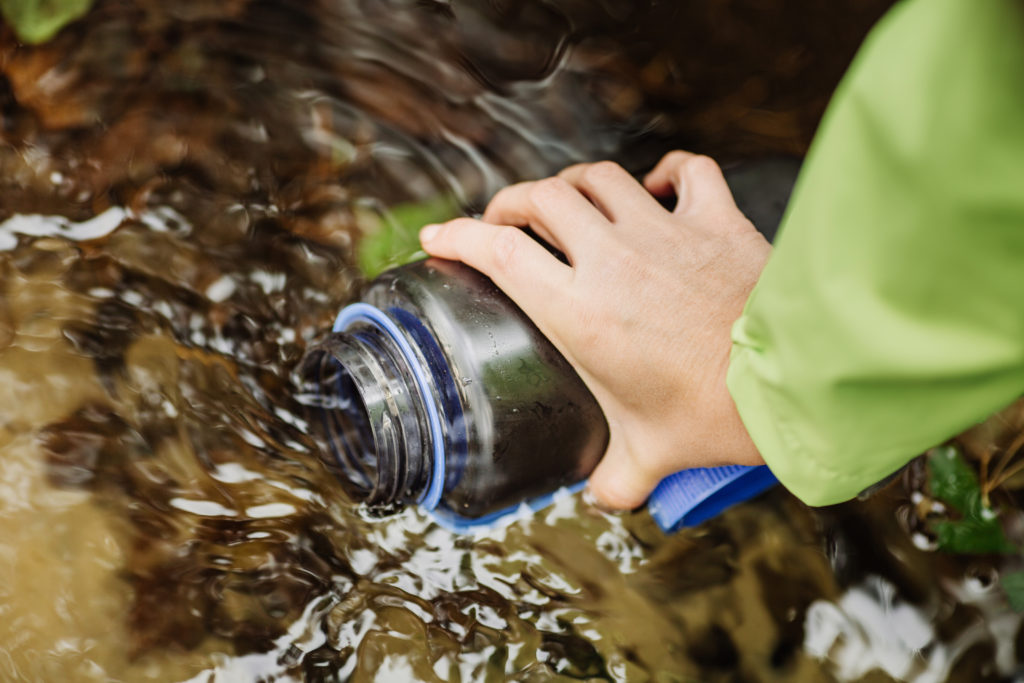
While camping, you’re exposed to the elements more than usual. You’ll want to drink more water to stay hydrated, particularly at higher elevations.
You’ll also want to make sure that water is safe to drink. Many designated camping sites have water on-site, but if you’re looking to venture out into the backcountry, you’ll need a way to purify the water.
The CDC recommends several methods for purifying water, including:
- Boiling the water
- A filtering system
- Ultraviolet (UV) light
- Solar Radiation
- Chemical purification
You can purchase water purification products online or at a camping supply store before you go. Be sure you also have a way to carry a good amount of water with you.
Sanitation
Proper disposal of waste is one of the key principles of Leave No Trace, which goes far beyond “pack it in, pack it out.” The essentials include:
- Wash yourself or dishes more than 200 feet from water sources.
- Use biodegradable soap–and use it sparingly.
- Learn how to properly dispose of human waste.
- Carry plastic bags with you to haul out your trash.
- Bring hand sanitizer. It’s amazing how quickly your hands get grimy. When water isn’t readily available, hand sanitizer can do the trick.
Keep Warm Safely
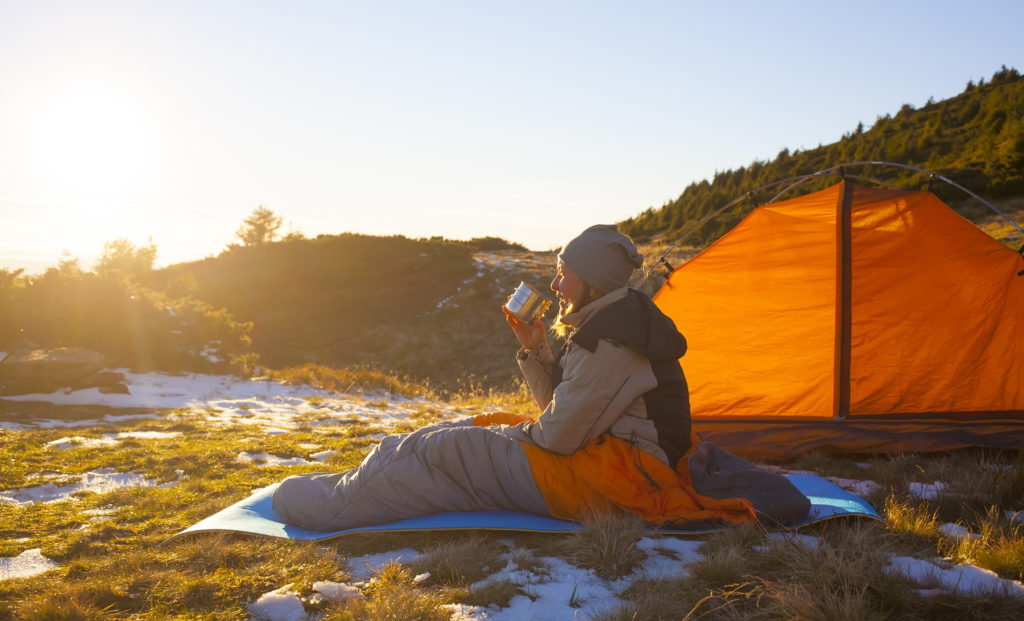
Certain heaters placed in a tent or camper are not safe to use. Portable, gas-powered heaters produce dangerous by-products when not vented correctly. Carbon monoxide poisoning is a possibility when campers use portable heaters or lanterns while sleeping in enclosed areas such as tents, campers, and vehicles.
Instead, REI, the outdoor recreation retailer, has some safe and effective ideas for keeping warm at night, including:
- Using another layer between you and the ground. One inflatable layer and one foam layer can keep you warmer at night.
- Eating food. A candy bar in the middle of the night can get your metabolism going again.
- Going to bed with a hot water bottle. Keep it near your core or over your kidneys.
- Getting an extra warm sleeping bag and outdoor blankets like these here.
Avoid Getting Lost
Avoid getting lost by following the National Park Service’s recommendations to stay on the trail and use the buddy system.
If you do happen to get lost, don’t panic. Know that your cell phone can get texts through better than a call. You may also be able to send a pin drop of your location. Getting to a higher elevation can help increase your cell phone’s signal.
Carrying personal locator beacons or satellite messengers are other options.
You Might Also Like:
• The 8 Best Ticket Websites for Booking Day Tours and Travel Activities• The Best Travel Leggings of 2023
• The 6 Best Quiet Luxury Pieces for Travelers
• Panama Travel Guide: What to Do in Panama
• The Ultimate Camping Packing List: 29 Essentials
We hand-pick everything we recommend and select items through testing and reviews. Some products are sent to us free of charge with no incentive to offer a favorable review. We offer our unbiased opinions and do not accept compensation to review products. All items are in stock and prices are accurate at the time of publication. If you buy something through our links, we may earn a commission.
Related
Top Fares From
Today's Top Travel Deals
Brought to you by ShermansTravel
Shop and Save with Country Inns...
Patricia Magaña
 Hotel & Lodging Deals
Hotel & Lodging Deals
$229 -- Chicago: Discounted Rates and...
Francesca Miele
 Hotel & Lodging Deals
$229+
Hotel & Lodging Deals
$229+
$188 -- Honolulu: Save on Oceanview...
Abigail Lamay
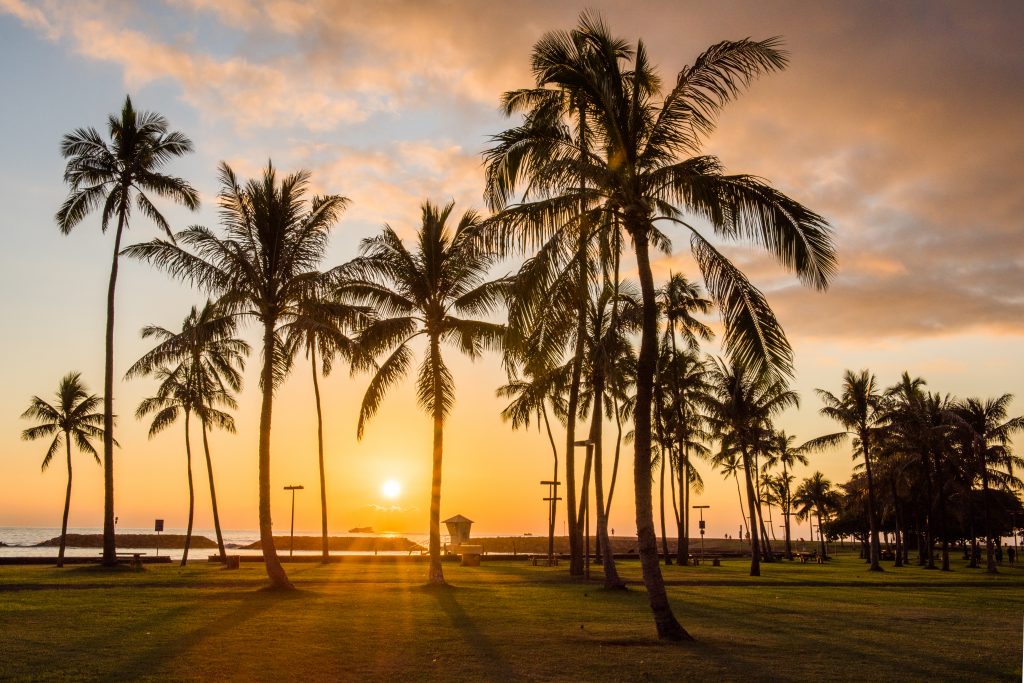 Hotel & Lodging Deals
$188+
Hotel & Lodging Deals
$188+
